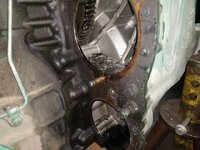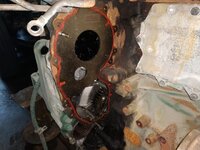Gold Lifetime
- Messages
- 26,976
- Reactions
- 71,390
I know of a mechanic who uses his older impact wrench to torque most heavy bolts because he can go by feel. 80 lb/ft? That's two uga-dugas.I wonder if @Ura-Ki uses a torque wrench much at all. There's different kinds of master mechanics and I hear some hardly use them on a daily basis.













